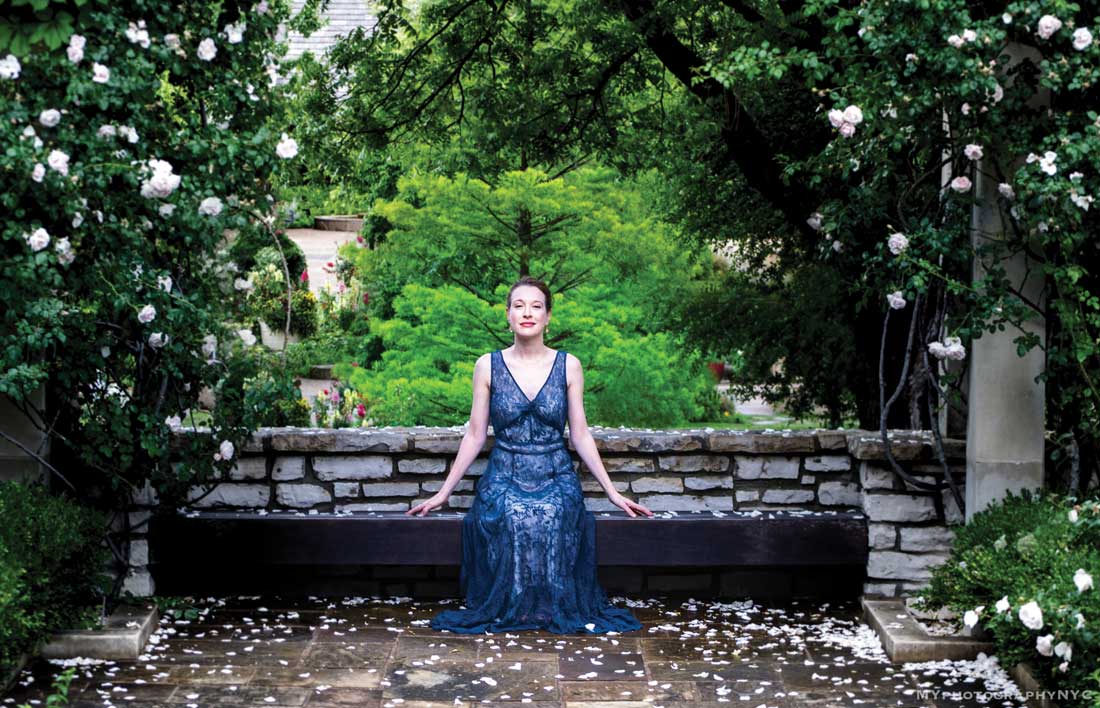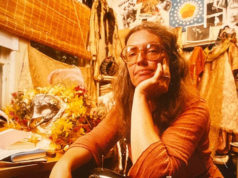The juxtaposition is striking: Ava Pine is building her career largely on 19th-century music, but she’s doing it with 21st-century tools. Two years after Marc’ Antonio e Cleopatra, on which she sang the female lead, was nominated for a Grammy, the local opera singer is funding her new album with the website known as Kickstarter.
Pine and Kate Stevens, her collaborative pianist, are launching their on-line fund-raising campaign in September and hope to collect enough money to begin recording by late fall. According to Pine, micro-funding has opened a lot of opportunities for artists who would normally need the backing of record labels.
While an independent release is planned, Pine is open to a record deal “if the product turns out well enough.” Marc’ Antonio e Cleopatra was released on the Ars Lyrica label.
The project will include several lieder (German songs) by the famous symphonist Gustav Mahler and possibly American composer Samuel Barber’s vocal work called Knoxville: Summer of 1915.
While operas rely on a team of people — conductor, prompters, stage managers, and the singers themselves — to make a performance happen, a chamber music performance of piano and voice requires that the musicians alone share the burden of keeping the music together.
“It’s a different type of singing than opera, in a way,” Pine said. “It requires close collaboration.”
Pine has reason to be optimistic about the new recording project. Her last album was a Grammy nominee for Best Opera Recording in 2011. Marc’ Antonio e Cleopatra, an early-18th-century opera by the German composer Johann Hasse, consists of 90 minutes of vocal music accompanied by a baroque-era chamber orchestra, which is notable for its light texture.
This style of music, with only two singers, falls into a style of music known as “serenata,” but it was close enough to grab the Grammy opera bid. The album was unique for another reason as well.
“The piece had never been recorded in its entirety before,” Pine said.
Pine’s agile and sensitive voice masterfully handles the difficult coloratura passages. Her dramatic abilities are clear, even without the benefit of seeing her on stage, as she captures the anguish, rage, and ecstasy of Egypt’s legendary seductress queen.
Pine sees her success as a combination of many small breaks and a few key people who bet on her career.
“I’ve had people like Darren and Jonathan take chances on me,” Pine said.
Darren Woods is general manager of Fort Worth Opera, and Jonathan Pell is the artistic director of the Dallas Opera.
Her first break, after moving here from Fredericksburg to earn a bachelor of arts in music at Texas Christian University, came in 2001. Pine, then 24, was singing with the First Presbyterian Church of Fort Worth choir. Woods took notice of her.
“Darren heard me sing at church,” Pine said. “I was performing Haydn’s Creation, and Darren came up and told me that I should sing opera.”
But Pine was still trying to figure out what she wanted to do with her life. Four years of working at a Blackberry marketing company (and occasionally singing sacred music) passed before she decided to contact Woods and take a gamble on the opera world. The first piece of advice Woods gave was for her to sign up for the summer vocal training program in the Adirondacks known as Seagle Music Colony.
Pine left her comfortable marketing job for a shot at making it in opera. In 2005 she played the role of Zerlina in Don Giovanni, and in 2006 she sang the role of Rosina in The Barber of Seville at Seagle.
That same year Pine entered a Fort Worth competition that is often overshadowed by the Van Cliburn International Piano Competition, with its multimillion-dollar budget. The McCammon Voice Competition is a biennial contest that has been organized by the Fort Worth Opera for 32 years and has launched careers for numerous famous singers such as Joyce DiDonato and Jennifer Holloway. Pine won the audience favorite award.
Now, after four years of leading roles in the Fort Worth Opera Festival and regular engagements with major music organizations such as the Fort Worth Symphony Orchestra and the Wisconsin-based Florentine Opera, Pine is finally starting to feel settled in her career choice. Despite her success, she is proud of her reputation as the “anti-diva” in a field known as much for its big egos as for its big stages (the term “prima donna” comes from opera). Pine makes sure to put the music and team before personal desires.
“You can’t be a diva. That kind of stardom really doesn’t exist in opera anymore,” she said.
After growing up in a small town, she feels the temptation to move to a larger city like New York, but Pine finds herself coming back to Fort Worth time and again. While many major cities offer their own opera programs, Pine said, Fort Worth creates an experience that can’t be found elsewhere because — through street banners, local news coverage, and other means — it really puts its opera on display.
“I’ve been to other towns where I wouldn’t have known there was an opera going on if I hadn’t been in the opera,” Pine said. “Fort Worth does a great job of making an event of what we do.”l













Hello There. I found your blog the use of msn.
This is a really well written article. I will be sure to bookmark it and come back to
learn more of your helpful info. Thank you for the post.
I will certainly comeback.